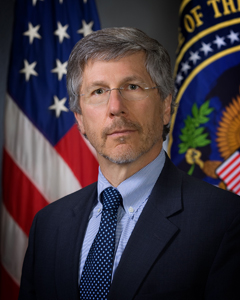The Justice Department’s Faulty Arguments in the Flynn Case
Under the logic of the government’s motion to dismiss the charges against Michael Flynn, the FBI can’t investigate whether someone is a Russian agent unless it already has evidence that the person is a Russian agent.

Published by The Lawfare Institute
in Cooperation With

The gist of the Department of Justice’s seemingly unprecedented motion to dismiss charges against Lt. Gen. Michael Flynn is that Flynn’s admitted lies to FBI agents could not have been “material[,]” because there was no predication for an investigation at the time of his interview by the FBI. (The department also apparently feels it necessary to half-heartedly argue that Flynn’s statements might not have been false, a tellingly silly argument in light of Flynn’s multiple admissions that they were.) As the motion says, “the evidence shows his statements were not ‘material’ to any viable counterintelligence investigation—or any investigation for that matter—initiated by the FBI.” The department notes that agents had recommended that an existing counterintelligence investigation into Flynn be closed for lack of evidence, and opines that Flynn’s conversations with Russian Ambassador Sergey Kislyak, and his false statements about them, provided no basis for continuing or reopening the investigation.
To understand why this is wrong, imagine the following: Someone who holds a grudge against you calls an FBI office and says that you are a Russian agent, providing fictitious details of invented meetings you have had with agents from Russia’s Federal Security Service. Before that call, the FBI had no information at all about you—let alone an open predicated investigation—but follows up with a public records search and an interview of you, and determines that there is no basis to the claim.
The logic of the department’s position in the Flynn case is that the person who maliciously reported you to the FBI could not be prosecuted for making a false statement, because at the time the statements were made, those statements “were not ‘material’ to any viable counterintelligence investigation ... initiated by the FBI.” Or, to put it differently, the FBI can’t investigate whether someone is a Russian agent unless it already has evidence that the person is a Russian agent.
That isn’t the way either counterintelligence investigations or 18 U.S.C. § 1001 work. To begin with, the language of § 1001 does not support the department’s position. Section 1001 makes it a crime to make a materially false statement “in any matter within the jurisdiction of” a federal agency. This language does not require that there be an open investigation, but simply that the matter be “within the jurisdiction” of the FBI.
Counterintelligence is certainly within the FBI’s jurisdiction. And it beggars the imagination to suggest that following up on the Flynn-Kislyak conversation, along with Flynn’s false statements to Vice President Mike Pence and Press Secretary Sean Spicer, was outside the FBI’s jurisdiction. At a minimum, as many have noted, the fact that the Russian government would know that Flynn had lied left him open to potential blackmail by a hostile foreign power—surely a realistic counterintelligence concern. Of course, Flynn might have had innocent explanations for his conversation and his false statements, but the FBI surely would have been derelict in its duty to ignore this potential threat. (I should note, as I have in the past, that former FBI lawyer Lisa Page is a friend of mine.)
And in fact the FBI was authorized to follow up, even if the prior investigation had been closed. Notably, the department’s motion makes no mention of the FBI’s Domestic Investigations and Operations Guide (DIOG), which describes the standards for predication and authorized investigative activity. The DIOG sets out several levels of authorized investigative activity by the FBI: fully predicated investigations, preliminary investigations, and assessments.
The standard for opening an assessment is quite low. It is explicitly less than “‘information or an allegation’ indicating the existence of ... [a]n activity constituting ... a threat to national security,” which is required to open a preliminary investigation (DIOG 6.5). Opening an assessment requires only that there be an “authorized purpose” and a “clearly defined objective” for the assessment. In particular, the DIOG makes clear that an assessment is appropriate when “there is reason to collect information or facts to determine whether there is ... a national security threat” (DIOG 5.1; emphasis added). And as part of an assessment, the FBI is allowed to conduct interviews, including of the possible subject or target (DIOG 18.5.6).
The attorney general and his minions are making the astounding argument that when the FBI—aware of extensive Russian interference in U.S. politics in order to benefit the Trump campaign—learned that the incoming national security adviser requested that Russia not respond to the sanctions that were imposed in response to that interference and then lied to other government officials about that, it could not even “collect information or facts to determine” whether this created a counterintelligence threat. This cannot be right. Even if the prior investigation into Flynn had been closed, which it had not, these circumstances at a minimum justified an assessment under standard FBI policy.
In fact, the department’s motion virtually concedes the point. It dismisses Flynn’s lies to Pence and Spicer by saying that “[h]ad the FBI been deeply concerned about the disparities between what they knew had been said on the calls and the representations of Vice President Pence or Mr. Spicer, it would have sought to speak with them directly, but did not.” But that would be a kind of investigative activity, and under the DIOG, either the FBI has a basis to investigate or it doesn’t. If the facts justified talking to Pence about Flynn, they justified talking to Flynn.
Of course, the bureau did not open an assessment of Flynn. But that’s because it didn’t need to—it already had open both the earlier counterintelligence investigation of him, which had not been closed, and the broader Crossfire Hurricane investigation into Russian influence. Interviewing Flynn was justified under either of those matters, and his lies about his activities were material to them.
It’s telling that no career prosecutor was apparently willing to sign the department’s motion, which was signed only by interim U.S. Attorney for the District of Columbia Timothy Shea. The department’s arguments in this case fit a disturbingly partisan pattern of distorting long-standing legal doctrines in the service of protecting the president as an individual rather than the national interest. One hopes for the sake of the nation that the Justice Department is not applying this novel and crabbed view of the FBI’s counterintelligence authorities across the board; one suspects that it is indeed not and that this is a ticket good for one trip only.




